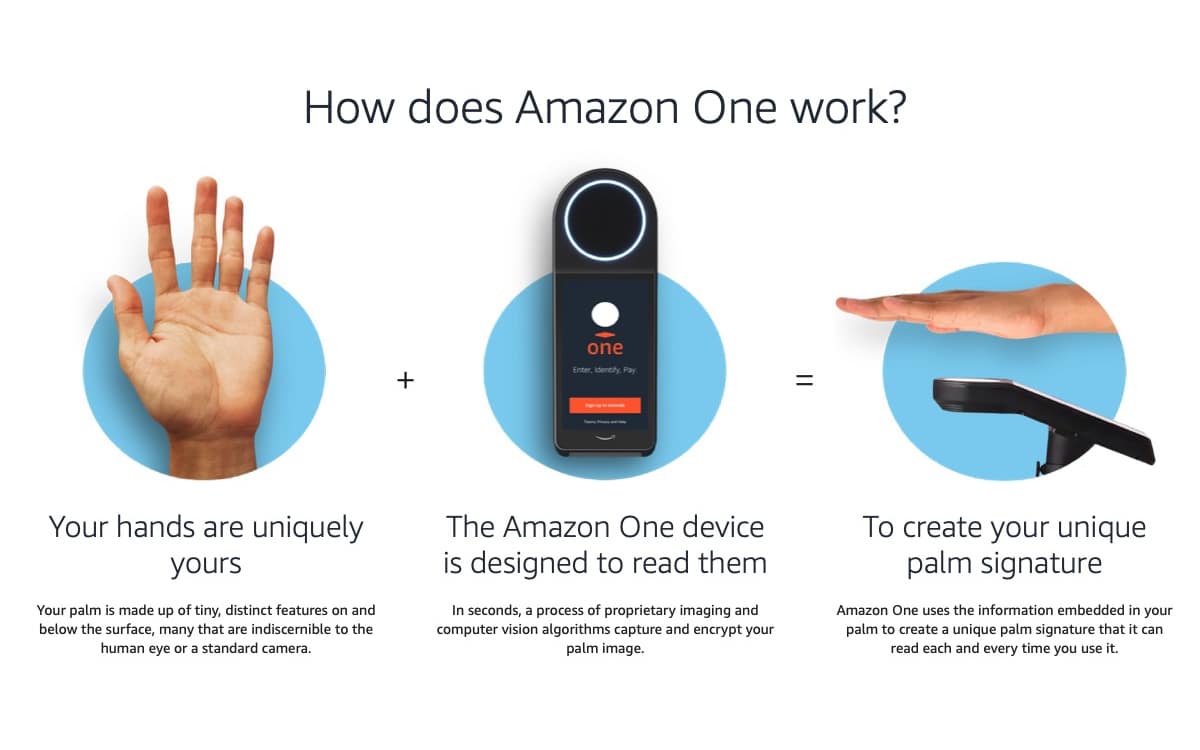Wed 30 September 2020:
Amazon’s latest effort to speed up shopping trips lets you pay with the palm of your hand at some of its stores.
Amazon vice president Dilip Kumar said the system was developed as “a quick, reliable, and secure way for people to identify themselves or authorize a transaction while moving seamlessly through their day.”
 Amazon One uses each individual’s “unique palm signature,” an alternative to other biometric identifiers such as fingerprint, iris or facial recognition.
Amazon One uses each individual’s “unique palm signature,” an alternative to other biometric identifiers such as fingerprint, iris or facial recognition.
“No two palms are alike, so we analyze all these aspects with our vision technology and select the most distinct identifiers on your palm to create your palm signature,” Kumar said in a blog post.
In Amazon Go stores, the palm-waving system will be added to the store’s entry gate as an option for shoppers.
“In most retail environments, Amazon One could become an alternate payment or loyalty card option with a device at the checkout counter next to a traditional point of sale system,” Kumar added.
The company said it was “in active discussions with several potential customers,” which may include other retailers, but offered no details.
After enrollment, a user holds their palm above an Amazon One scanner to enter the store. Then, anything they take will be automatically charged to the credit card connected to their palm. Users should be able to use the same palm to enter and shop at multiple stores, Kumar said.
At first, users will be able to link one credit card to either or both palms; eventually, Kumar said, there may be an option to assign one credit card to each palm.
Amazon said the biometric data would be “protected by multiple security controls, and palm images are never stored on the Amazon One device” but sent to a “highly secure area we custom-built in the cloud.”
Doug Stephens of the consulting firm Retail Prophet, said Amazon would need to protect the data to gain user trust in the system to make it mainstream.
“Biometrics as a form of ID/payment etc has always made ultimate sense,” Stephens said on Twitter. “The question is, will Amazon mainstream our comfort with them or violate our trust?”





